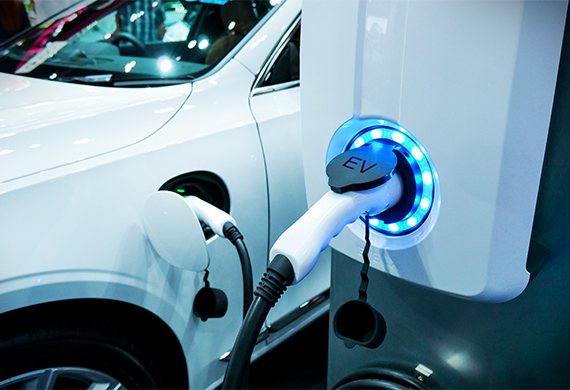Electric Car and Vans Business Guide: How to Choose the Ideal Manufacturer and Model
Making the transition to electric vehicles involves research planning. This begins with understanding the wide range available on the UK market and the specific criteria your business will have to meet.
To get a wider understanding of which electric car or van will be your ideal match, read on for insights that will make your purchasing decision easier.
How much is an electric car?
Prices range from £20,000-£100,000 from one EV model or manufacturer to the next. Ultimately, whilst EVs may be more expensive than traditional diesel and petrol cars, many businesses will save money in the long-term by owning an EV. Consider it as return on investment (ROI) over several years, as they are cheaper to run due to their charging and servicing costs.
According to data from the comparison website iCompario, employees and businesses alike can save up to £904 on their annual fuel costs per vehicle if they switch to an electric vehicle.
Additionally, EVs are cheaper to maintain. They are reliable and durable vehicles built to last, with no need for oil changes or engine management. This reduces servicing costs and keeps your vehicles on the road.
How much is an electric van?
Prices vary for electric vans based on the model and manufacturer. Costs range between £25,000 to £65,000.
The size of the van, its range and the selection of features all influence the cost.
Important criteria for purchasing an electric car or van
It is important to remember electric vehicles function differently from diesel and petrol vehicles. The essential differences include:
- Price ranges: Electric vehicles can be quite expensive. Make sure you check the market thoroughly to find a model that is suitable for your budget.
- The electric car’s range: Electric vehicles all have different range capacities, which is largely down to the battery in the vehicle. Some models are built to offer longer ranges, whereas others are more limited. Make sure you choose what you need.
- Charging infrastructure: There are EV charge cards and charge points to assist with recharging your EV. Both options allow you to charge at designated points. You should choose a combination to cover as many eventualities as possible.
- Battery life: Every EV has a different battery lifespan. Some electric vehicles will need a replacement unit sooner than others. Select your electric vehicle carefully to find the most durable model.
- Comfort and safety: If you are new to EVs, it is a sound idea to test drive a few to get a handle on how they differ from other vehicles you have driven. This will help you to find the right match for your business.
Remember, EVs are the future for the UK. The government will ban the sale of diesel and petrol vehicles in 2030.
By making the transition now, you are effectively future proofing your business. Alongside the cost savings you will make, it is good business practice to switch to electric vehicles sooner rather than later.
The different types of electric vehicle ranges
Range is all-important with any EV, but there are different varieties to consider. These include:
- HEVs (hybrid electric vehicles): These are unique due to being self-charging. The vehicle uses its diesel/petrol engine to fuel the car or van, charging a small battery when braking. This means you do not need to worry about plugging them in.
- PHEVs (plug-in hybrids): Can drive on electricity for 20-40 miles in addition to their petrol/diesel engine. After that, you can recharge or simply use the traditional fuel engine.
- BEVs (battery electric vehicles): A standard, fully electric vehicle. The average range of an EV of this kind can vary from 150-300 miles, depending on the car, battery quality and driving behaviour.
Remember, battery performance and range are influenced by how you drive. Follow the best charging and driving practices for EVs to extend your vehicle’s lifespan.
You can use tactics such as not charging from 0%-100% in one go. It is best to charge incrementally or leave the vehicle in a zone between 30%-80% as much as possible.
Industry-leading electric car models to consider
With the above details in mind, we’ve pulled together a list of some of the most popular plug-in models available today.
Nissan Leaf
- 150-mile range
- Spacious and comfortable vehicle
- 7.5 hour charge time with a 40kWh battery
This compact electric car has been available since 2010 but has had various redesigns and has stood the test of time. Reliable and durable, it offers a range of up to 150 miles off a full charge.
The car has seating for five people and has optional ProPILOT Assist technology to help you safely manoeuvre the vehicle around the UK’s roads.
BMW i3
- Up to 190 mile range
- Carbon fibre reinforced plastic body structure
- 170 HP
Ideal for city environments, the BMW i3 is an ultra-compact electric car. It boasts a range of 153 miles from a full charge, with a battery charging time of up to 80% within 42 minutes.
The unique design of the i3 makes it stand out from many electric cars.
It has a body that is made from carbon fibre reinforced plastic. Added to this are numerous technical features, such as a range extended option to add more distance to your drive. There is also an iDrive infotainment system to control the air conditioning, radio and navigation system.
Hyundai Ioniq 5
- Insurance group 29-40
- 10% -80% rapid charge in 18 to 36 minutes
- Range of up to 300 miles
The Hyundai Ioniq 5 is a mid-sized crossover SUV. It boasts a range of up to 300 miles, which is one of the most impressive on the UK market.
The car is designed with a spacious interior, offering comfort, safety and driving ease. It also has an appealing design with a futuristic look, reflecting the overall quality of the car. You can also customise the interior, with a sliding central console featuring a 12.3-inch entertainment screen for driving, safety and infotainment.
Hyundai is proud of its design, viewing the EV as blurring the lines between a living and moving space.
Industry-leading electric van models to consider
Below are some of the best quality electric vans you can buy for your organisation.
Mercedes-Benz eVito
- Up to 162 miles range
- Payload of 749-807kg
- Ideal for urban businesses and sole traders
The eVito is built for driving ease and safety. It comes featuring Mercedes Me connectivity technology, which is designed to promote safer driving standards.
You can charge the eVito to 80% from a 35-minute rapid DC 80 kWh charger. With an AC 11kWh charger, you can also reach 100% in just over six hours. The range of the van is also excellent, with over 160 miles from a full charge.
Factor in a payload of up to 807kg and Mercedes has built a reliable and efficient van that will suit any fleet.
Ford eTransit
- Iconic model in EV form
- Up to 196-mile range
- Available in two heights and three length variations
With its 400-volt battery and 68kWh of usable power, the Ford eTransit is a large van with 15.1 cubic metres of cargo space.
You can buy it as a double cab-in-van, single chassis or the traditional van. All of which have ranges between 166-196 miles from a full charge. From 15%-80% on DC fast charge, you will only be waiting for 34 minutes.
There is also a maximum gross payload of a huge 1,711kg, making the van ideal for businesses needing to haul significant amounts of cargo.
Final advice for purchasing an electric vehicle
The most important aspects of buying an EV are:
- Finding the right model for your needs
- Ensuring it is within your budget
- Finding the right range capacity
With those three factors in mind, you can find the right EV for your business. Research is crucial to this process, with careful consideration the key to finding your ideal vehicle.
If you’d like any help or advice, our expert team are on hand. Get in touch here.


